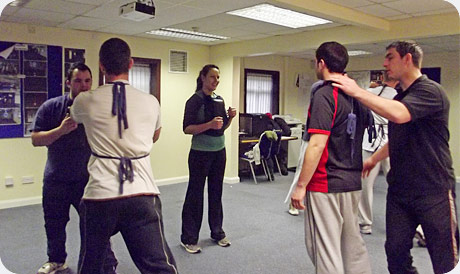Close Protection
Also known as CP or body guarding – is a form of private security which focuses on protecting people, their possessions and in some cases their property. The primary role of a close protection security officer is to establish ways to reduce the perceived risks which a Principal (the individual client being protected) is likely to face within a particular environment. To this end, CP is most often required at public events, important meetings and on overseas trips, as well as in any other situation where a Principal’s personal safety could be jeopardised.
Needless to say, a career as a close protection security officer can be exciting, varied and, in some cases, very lucrative. However, it needs to be noted that the nature of close protection security work is somewhat dangerous. Because of this, individuals who are keen to pursue a CP career must undertake suitable security training and obtain an appropriate licence before they are able to start looking for work.
Getting Qualified
The private security industry is regulated by the Security Industry Authority (SIA). The SIA operates a compulsory licensing scheme which is thoroughly invigilated and monitored all throughout the UK: individuals who do not successfully complete approved SIA courses will not be allowed to work within the private security industry. The SIA stipulates that anyone who is looking to guard one or more individuals on a professional basis against assault or injuries that may be suffered as a result of the unlawful conduct of others must hold a close protection licence.

There are two types of close protection security licence: front line and non-front line. Anyone who is looking to work as front line CP officer must obtain a front line licence. This type of SIA licence needs to worn – and be clearly visible – at all times (although there might be times when officers may need to conceal it about their person for security reasons). Individuals who are interested in managing, supervising or employing professionals engaged in licensed activities must obtain a non-front line licence.
Looking for Work
Most individuals who pass the appropriate CP security training courses end up working for themselves on a freelance/self-employed basis. Because of this, contract lengths in the industry can vary considerably and work opportunities are often negotiated by CP companies. Suffice to say, being able to ‘network’ effectively is something every fledgling CP officer needs to be capable of as keeping an ear to the ground really is vital for long term success.
As with most other industries, the more strings a CP officer has to their bow, the more work opportunities will fall their way. Certainly it is well within a CP officer’s own interests to develop themselves professionally after they have completed their initial training as having more specialist skills (such as defensive driving, medical expertise or surveillance), as well as being up to date with the latest technical advances, will help to make a CV look that much better to prospective employees.
About the author – Bo Heamyan blogs regularly about the security industry and has written extensively about the importance of professional qualifications for various websites, including WilplanTrainig.co.uk.










Comments are closed.